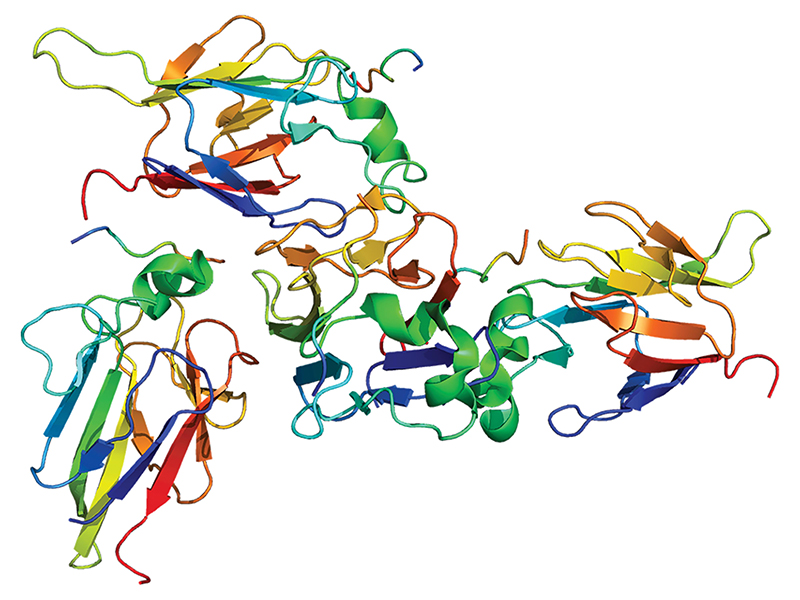Diabetes May Increase Hematologic Cancer Risk and Mortality

Having diabetes increases a person’s risk for developing leukemia, lymphoma, or multiple myeloma—and their risk for dying from the cancer should it occur, researchers reported in Diabetologia.
All Patients, Regardless of Insurance, Must Have Access to Cancer Screening

To increase access to breast and cervical cancer screening, U.S. Congress passed the Breast and Cervical Cancer Mortality Prevention Act of 1990, which led to the creation of the National Breast and Cervical Cancer Early Detection Program (NBCCEDP). Because of NBCCEDP, eligible women who are low-income, underserved, and underinsured receive free breast and cervical cancer screening and diagnostic testing.
- Read more about All Patients, Regardless of Insurance, Must Have Access to Cancer Screening
- Add new comment
Biden’s American Rescue Plan Targets Social Determinants of Health and Other Disparities

The Biden administration’s American Rescue Plan (APR) is the largest, single piece of legislation focused on economics since Franklin D. Roosevelt proposed in his New Deal programs to pull the United States out of the Great Depression. Sweeping in scope, two of APR’s goals are to make health care accessible for all and to create formal plans for addressing racial disparities.
- Read more about Biden’s American Rescue Plan Targets Social Determinants of Health and Other Disparities
- Add new comment
Genetic Disorder Reference Sheet: CHEK2 Gene Pathogenic Variants

The CHEK2 (checkpoint kinase 2) tumor suppressor gene provides cells with instructions for making a protein known as CHK2, which becomes active when the cell’s DNA is damaged or strands of it break. CHEK2 halts cell division and enables either cell repair or destruction. Without a properly functioning CHEK2 gene, cells lose a key restraint on their growth which may lead to uncontrolled cells and possibly malignancy. CHEK2*1100delC is the most common pathogenic variant and most prevalent in European populations.
FDA Approves Pembrolizumab for Esophageal or GEJ Carcinoma

On March 22, 2021, the U.S. Food and Drug Administration (FDA) approved pembrolizumab (Keytruda®) for use in combination with platinum- and fluoropyrimidine-based chemotherapy for patients with metastatic or locally advanced esophageal or gastroesophageal junction (GEJ) (tumors with an epicenter 1–5 cm above the gastroesophageal junction) carcinoma who are not candidates for surgical resection or definitive chemoradiation.
FDA Advises Healthcare Professionals Not to Use BD’s ChloraPrep™ 3 ml Applicators

On March 19, 2021, the U.S. Food and Drug Administration (FDA) issued an advisory to healthcare professionals not to use ChloraPrep 3 ml applicators manufactured by BD (Becton, Dickinson and Company) because of the risk of microbial contamination. The product was distributed globally and is labeled with “CareFusion, El Paso, TX.”
- Read more about FDA Advises Healthcare Professionals Not to Use BD’s ChloraPrep™ 3 ml Applicators
- Add new comment
U.S. Rep. Underwood, RN, Introduces Climate and Health Protection Act

Climate change was a core issue throughout the Biden-Harris campaign trail, and many advocacy groups are clamoring for the new administration to keep its promises. Recognizing the link between environmental concerns and health care, U.S. Representative Lauren Underwood (D-IL) introduced a bill that addresses both topics.
- Read more about U.S. Rep. Underwood, RN, Introduces Climate and Health Protection Act
- Add new comment
ONS Supports Palliative Care, Access to Care in Latest Health Policy Agenda

For its advocacy approach to the 117th U.S. Congress that convened in January, ONS increased its emphasis on palliative care and patient access, developing its 2021 health policy agenda to reflect the evolving healthcare legislation landscape.
- Read more about ONS Supports Palliative Care, Access to Care in Latest Health Policy Agenda
- Add new comment
Meet Your ONS Leader: Susie Maloney-Newton

Empower Recent Graduate Nurses to Be Patient Advocates

Most nurses can attest to the immense personal and professional growth that takes place during the first year of their nursing practice. When I graduated in May 2019, I began working on a blood and marrow transplant (BMT) unit. The BMT process is long and intensive, but it provides opportunities to develop strong connections with our patients. We often care for the same patient for multiple weeks or months and then again a year or two later if they experience longer-term complications. As a newly minted nurse, I had a lot to learn about my specialty and about nursing in general, but my fresh perspective made learning exciting.





